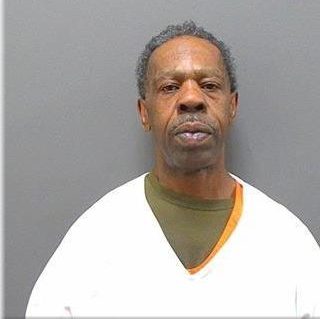Judge delays decision on House of Correction control (UPDATE)
By: Beth Kevit, [email protected]//February 19, 2013//
Judge delays decision on House of Correction control (UPDATE)
By: Beth Kevit, [email protected]//February 19, 2013//

Milwaukee County will have to wait until Monday to learn whether one of its employees can be questioned in Sheriff David Clarke Jr.’s lawsuit over control of the House of Correction in Franklin.
The lawsuit, filed in December, seeks to bar the county from transferring control of the House of Correction, which Clarke calls the County Correctional Facility-South, to a yet-to-be-hired superintendent.
The county wrote that transfer of control into its 2013 budget, allocating money for a superintendent to start working April 1. Milwaukee County supervisors have said concerns over a lack of rehabilitative programming, such as release on electronic monitoring, at the HOC sparked that effort.
Clarke contends that transfer of control would violate his constitutional authority to oversee the care of county inmates.
Michael Whitcomb, Clarke’s attorney, has asked the judge to let him question an unspecified county employee about the intended effects of the budget amendment that instigated the transfer.
Milwaukee County Circuit Judge Paul Van Grunsven, at a hearing Tuesday, delayed that decision.
Ron Stadler, an attorney with Milwaukee-based Gonzalez Saggio & Harlan LLP who represents the county, said he intends to ask Van Grunsven to grant summary judgment in the dispute. The lawsuit is purely a legal question of whether the county can take control of HOC away from Clarke, Stadler said.
According to state statute, he said, the answer is yes.
Stadler has to file that motion by Friday, and Van Grunsven said he wants it before deciding if it would be appropriate to depose people for the case.
Whitcomb said deposition is necessary because the intended effect of transferring the HOC isn’t clear just by reading the budget. He said he’s still unsure if the sheriff would retain some control of the electronic monitoring program at the HOC.
It is also unclear, Whitcomb said, if the superintendent only would have building oversight, similar to an apartment building’s superintendent, or oversight that includes authority over inmates.
Stadler said county supervisors are the only people who could answer those questions. But, he said, they cannot be questioned in court about legislation.
That protection exists to preserve the flow of public policy, Stadler said. Forcing legislators to respond to court challenges could prevent them from getting anything else done, particularly considering the volume of any legislative body’s activities, he said.
“We’d spend more time in depositions than we would making laws,” Stadler said after Tuesday’s hearing, adding that he believed legislative privilege applies to the county’s budget.
Whitcomb, however, said he is unsure. The budget only sets the county’s financial framework for the coming year, he said.
“A budget is not a statute,” he said after the hearing. “A budget is not self-executing.”
Furthermore, Whitcomb said, he’d be happy to question an employee who isn’t a supervisor if Stadler could identify someone.
The parties will appear in court at 3 p.m. Monday to further discuss the possibility for deposition.
Supervisor Mark Borkowski, chairman of the County Board’s Judiciary, Safety and General Services Committee, said the budget speaks for itself. He said Whitcomb’s questions are a stall tactic.
It should be clear to Clarke, Borkowski said, that the superintendent would control the electronic monitoring program.
![]()
- Jewell to be first Black woman to serve as House of Correction superintendent
- Computer system restored for Milwaukee jail bookings (UPDATE)
- Audit begins into medical care at Milwaukee County jails
- Milwaukee County approves $15K settlement for inmate
- Abele declines to veto Sheriff’s Office absconder unit
“It was because of the electronic monitoring that my colleagues said, ‘We’re going to take the house away from the sheriff,’” Borkowski said. “That was the genesis for the board to do what it did, was because of Clarke’s lack of willingness.”
The county wants about 200 people on electronic monitoring on average, Borkowski said, and the last time he checked only about five inmates were using the program.
Whitcomb acknowledged Clarke’s dislike of electronic monitoring, though he denied attempting to stall the lawsuit beyond the transfer date. It isn’t clear, he said, if a superintendent could overrule the sheriff because that could infringe on the duties Clarke was elected to perform.
“The issue is: Who is the ultimate authority when you have a superintendent and a sheriff in the same county?” Whitcomb asked. “What if the two disagree?”
And what if, he said, an inmate released on electronic monitoring committed another crime? Would the sheriff or superintendent catch the heat?
Supervisor Pat Jursik, one of the budget provision’s sponsors, said the board envisioned the superintendent controlling who could be in the electronic monitoring program and the sheriff responding if someone violated the program’s rules.
“It’s the sheriff that goes out and picks up those individuals,” she said.
Jursik discounted Whitcomb’s suggestion that the superintendent could control the building while the sheriff retained control of the inmates housed there.
“I think that is a distinction,” she said, “that is not going to be supported.”
Whitcomb acknowledged that argument might not stand. He said he suspected supervisors had meant to give the superintendent control of both the building and its inmates. However, he said, he doesn’t know that for sure, though he could if he were allowed to depose a county employee.
“I would surmise that was the intent as well,” he said, “but I just wanted that to be an undisputed fact.”
Legal News
- FBI launches criminal investigation into Key Bridge collapse
- Man charged in slaying after woman’s leg found at Milwaukee-area park
- Minnesota man guilty in fatal stabbing of teen on Wisconsin river, jury finds
- Wisconsin teen sentenced in bonfire explosion that burned at least 17
- Wisconsin man who broke into home, ate victim’s chicken, slept in victim’s bed, receives prison and jail sentences
- Judge refuses to dismiss Hunter Biden’s gun case
- House passes reauthorization of key US surveillance program after days of upheaval over changes
- Milwaukee Police officer traveling to Georgia training retires before facing discipline
- Evers to ask legislature to approve largest increase in state support for UW System in two decades
- 7th Circuit Court of Appeals proposes new rules
- Federal agencies allege toxic work environment for women in new report
- Wisconsin man sentenced for sex trafficking a woman and a minor online
WLJ People
- Power 30 Personal Injury Attorneys – Russell Nicolet
- Power 30 Personal Injury Attorneys – Benjamin Nicolet
- Power 30 Personal Injury Attorneys – Dustin T. Woehl
- Power 30 Personal Injury Attorneys – Katherine Metzger
- Power 30 Personal Injury Attorneys – Joseph Ryan
- Power 30 Personal Injury Attorneys – James M. Ryan
- Power 30 Personal Injury Attorneys – Dana Wachs
- Power 30 Personal Injury Attorneys – Mark L. Thomsen
- Power 30 Personal Injury Attorneys – Matthew Lein
- Power 30 Personal Injury Attorneys – Jeffrey A. Pitman
- Power 30 Personal Injury Attorneys – William Pemberton
- Power 30 Personal Injury Attorneys – Howard S. Sicula











